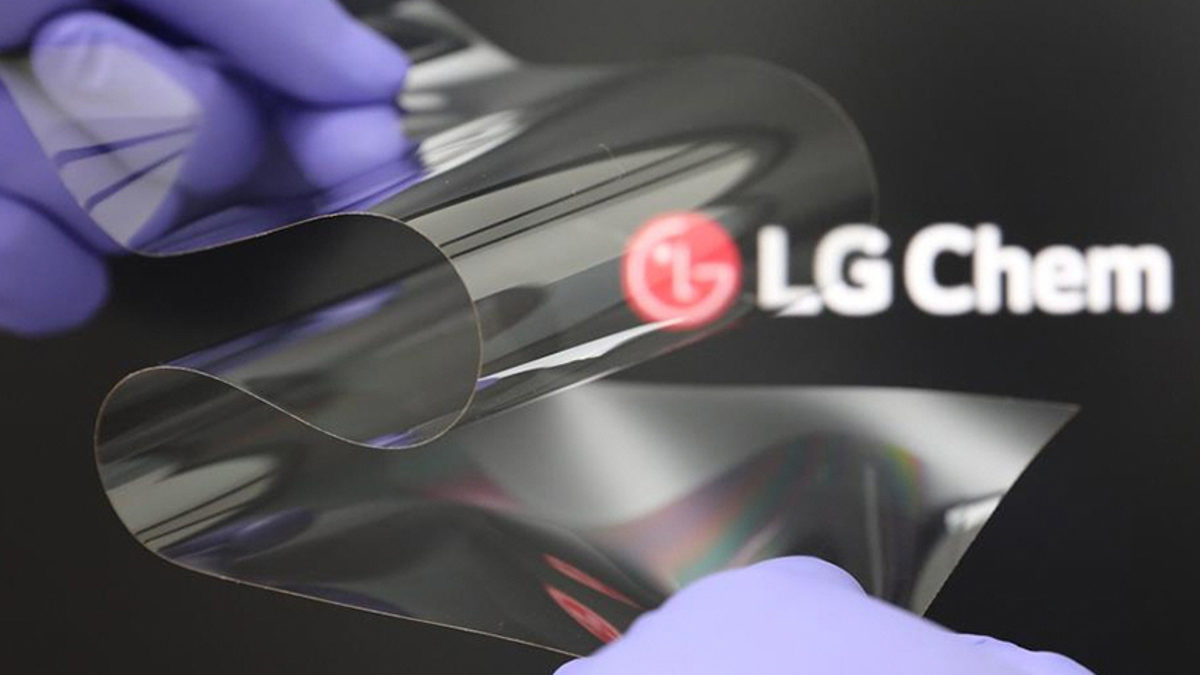
- LG Chem has developed Real Folding Window technology.
- This sees a special coating applied to a thin plastic film.
- The solution has the same hardness as glass but is as flexible as plastic.
There are two main problems with many foldable phones today, namely the fact that the folding display has a crease and that the plastic top layer of the screen is often softer than traditional smartphone displays made out of glass. Now, LG Chem has announced a new type of cover material that promises to address these issues.
The company revealed its so-called ‘Real Folding Window’ technology today, and it takes the form of a specially developed coating atop thin polyethylene terephthalate (PET) plastic film. LG Chem adds that the material is thinner than existing tempered glass but has the same hardness while being as flexible as plastic.
“Unlike existing polyimide films and tempered glass-type materials, the cover window that applied LG Chem’s new coating technologies will maximize flexibility, while also providing optimized solutions for foldable phones such as making improvements to chronic issues like fold impressions on the connecting part of the screen (sic),” a company spokesperson said.
Related: The best foldable phones you can buy right now
LG Chem says durability is “maintained completely” after the Real Folding Window is folded 200,000 times. The company adds that the tech can be used for both in-folding and out-folding displays. The solution also delivers major improvements to “fold lines” seen on folding areas of the screen (i.e. it reduces creases).
The company also says it’s working to offer the special coating without the use of plastic film. This presumably opens the door to manufacturers who simply want to beef up their already completed foldable phone designs, akin to adding Gorilla Glass.
So when can we buy the first foldable phones with this tech, then? It looks like we’re in for quite a long wait, as LG Chem says it’ll only gain mass-production capabilities in 2022, adding that “full-scale” sales kick off from 2023. The firm says it’s also looking at expanding beyond phones and applying the tech to laptops and tablets. In saying so, LG Chem noted that it has already received proposals from multiple clients about joint projects.
We’ve asked the company about comparisons to ultra-thin glass in terms of cost and other factors and will update the article accordingly.